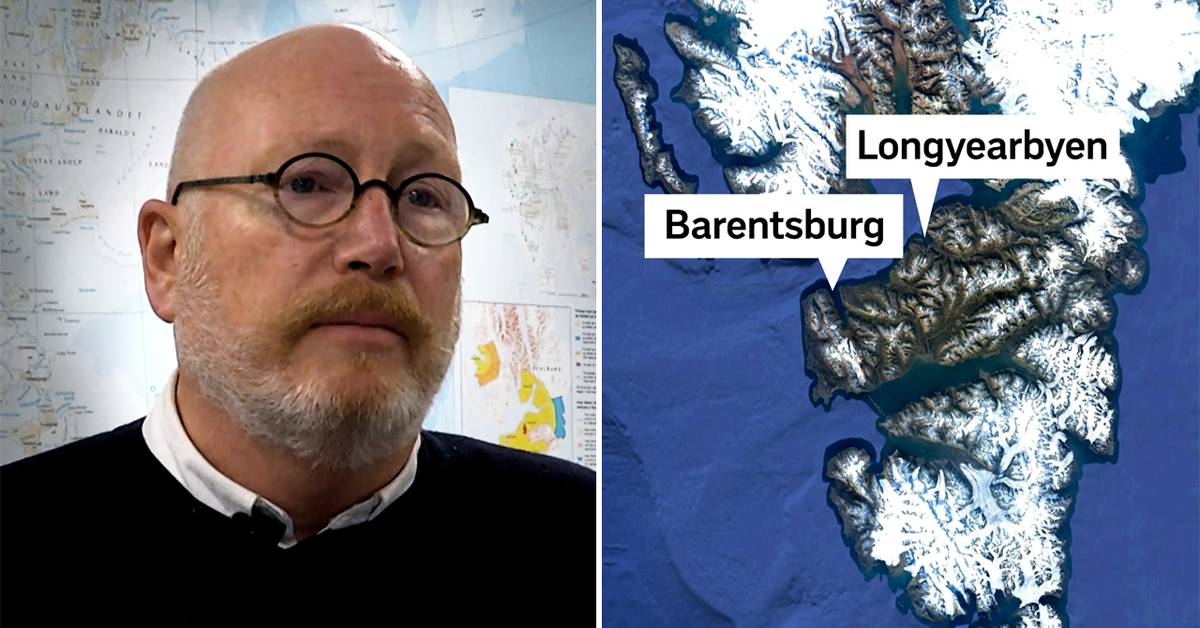At the Kroa restaurant in Longyearbyen, thick down jackets hang on hooks between the tables.
Outside, a dense darkness lies over snowy streets.
We are just at the beginning of the polar night and the sun will not rise above the horizon for several months.
But behind the bar, a large yellow-blue Ukrainian flag lights up the room.
Restaurant manager Zandra Zadewasser raises one corner of the flag.
Behind: a large white bust representing Soviet leader Lenin.
Before the war, it was a well-photographed gift from the Russian settlement of Barentsburg.
- But then we got the Ukrainian flag from a family that lives here and then we chose to hide him, says Zandra Zadewasser.
"Inconvenience"
The two main settlements on Svalbard are Norwegian Longyearbyen and Barentsburg, owned by the state-owned Russian coal mining company Arktikugol.
The two have lived in relative coexistence, even during the Cold War and the collapse of the Soviet Union.
Then came Russia's full-scale invasion of Ukraine and the situation changed.
The already strained relationship soured further when Visit Svalbard, the local tourism industry organization, broke with state-owned Russian companies.
Which in practice means Barentsburg.
- This is an inconvenience for everyone but clearly a moral decision, says Visit Svalbard's chairman Ronny Strømnes.
The decision was not uncontroversial among Norwegians in Longyearbyen.
Many express great solidarity with Ukraine, but at the same time say they support contacts "between peoples".
Sensitive question
Visit Svalbard has also received outright threats.
- There was a text message directly to a board member from an anonymous source in terribly bad English.
“Don't think you are God or better than others.
Be careful where you walk.”
In Barentsburg, people are cautious about the current situation.
- There are many problems and difficulties today, says Tatijana Betjer, who is the principal of Barentsburg's school.
- But it is important to preserve the relationship and do everything you can to keep people in touch.

